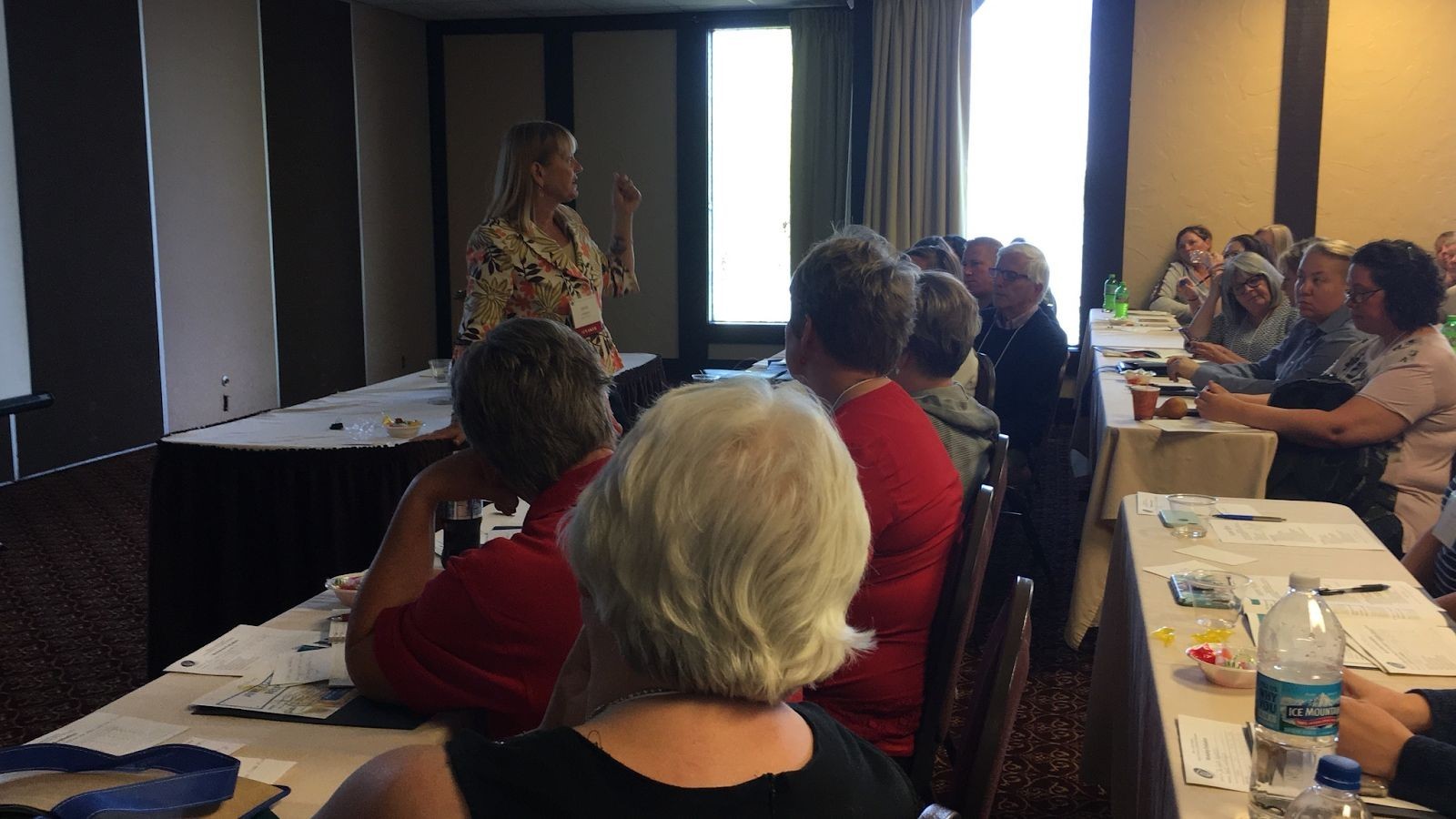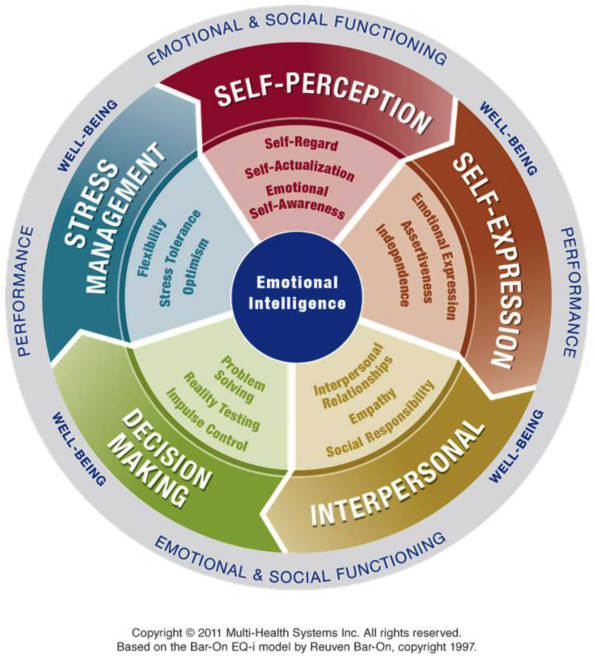SERVICES
COACHING
EMOTIONAL INTELLIGENCE
EQ-i (EMOTIONAL INTELLIGENCE) ASSESSMENTS
CLINICAL SOCIAL WORK SUPERVISION
AGENCY CONSULTING
TRAINING AND PROFESSIONAL DEVELOPMENT
Sandi is an experienced national trainer for organizations and conferences. She will work directly with you to tailor her training to fit the needs of your organization. Trainings can usually be arranged to be in person, webinar and/or group conferencing. Some of the more recent popular training topics are listed below:
Consider Sandi for coaching, training, facilitation or supervision or speaker needs. I believe in customizing workshops, trainings, presentations, etc in order to best meet your specific needs. Please contact me so that we can discuss the possibilities.

Coaching

1:1 Executive Leadership Coaching – The success of my approach to executive development is in utilizing your “people” or “stakeholders” to support, challenge and measure your leadership development. Sandi is trained in and utilizes Stakeholder Centered Coaching (see Marshall Goldsmith –SCCoaching.com), which has proven measurable success for 97% of leaders worldwide. Plan on a minimum of 6 months, up to a year to create lasting positive leadership change in your organization.
Here’s a brief outline of how it works:
2. Stakeholders. – Leader selects a handful of “stakeholders” (boss/es; direct reports/peers) to support leader development. Throughout the coaching program the leader involves this group of stakeholders on a monthly basis to support leadership growth. This creates accountability on both sides, which has a positive impact and benefits the team as a whole.
3. Feedforward – On a monthly basis, the leader involves stakeholders to capture “feedforward” suggestions as it relates to the leader’s growth areas.
4. Monthly action Planning – Based on the feedforward suggestions, the coach supports the leader creating and finalizing an ‘action plan’ for the following month; which will be shared with the stakeholder group.
5. Change behavior and perception – throughout the month the leader demonstrates to the stakeholder group the actions, the commitment towards making visible change in becoming a more effective leader. Following up regularly with stakeholders assists in altering their perception of leader over time.
6. Measurement – Progress Review
The coach checks in with stakeholders each quarter via a short internet based survey – to measure stakeholder perceptions on how leader’s effectiveness has been changing. This progress review is reported back to the leader and the sponsor and plays a key role in measuring leadership growth for the leader and the organization.
Team Coaching – Many leaders are trying to figure out how to build their team into a more efficient, autonomous and cross-functioning team, on limited time. Effective teams have a positive impact on the bottom line for organization’s financial success. Research has shown how focused feedback and follow up can increase leadership effectiveness (see Executive Leadership Coaching listed above). A parallel approach has been shown to help leaders build teams without wasting time. This process will require that team members have the courage to regularly ask for – and learn from – regular input from their team members.
Here are the basic steps:
Step 3, 4 : Team determines which behavioral changes are needed Step 5: Feedforward
Step 6: Choosing team goal and individual goal Step 7: Monthly feedback and feedforward input Step 8-9: Measurement (mini-survey) and results Step 10: Key learning from mini-survey
Step 11: Team discussion on results
Step 12: continue monthly feedforward sessions
Step 13-14 one year summary session and future focus.
Group Coaching – Group coaching can happen in –person or virtually. It is a way for people with similar goals/concerns/issues/interests work individually while benefiting from the experience and inspiration from the group as a whole. If you have a group of people who are working on the same goal as a team, then it would be best to consider team coaching.
Mentor Coaching – Sandi is an ICF Certified Mentor Coach and will work with you in a way that best fits your coaching needs. ICF requires a minimum of 10 hours mentor coaching prior to the ACC certification. Mentor coaching is also available for those interested in mentoring related to youth coaching.
Clinical Social Work Supervision

MN Board of Social Work requires the licensed social worker and the master’s level licensed graduate social worker to receive a specific amount of supervised clinical practice.
● Virtual Groups
Emotional Intelligence

- Emotional intelligence is proven to be a key indicator of human performance and development. EI can be measured and –unlike IQ – it can be strengthened and developed.
- The EQ-i 2.0 Model and assessments feature 15 EI skills divided into five distinct aspects of emotional and social functioning. A well-being indicator measures your level of happiness – resulting in additional development opportunities!

EQi (Emotional Intelligence) Assessments

The EQ-i 2.0 is a psychological assessment that contains scientific knowledge that has been researched, tested, validated, and normed across North America. Multi-Health Systems has tested more than 2 million people of various ages from more than 72 countries. This assessment cuts across the gender gap, can be applied throughout a range of multicultural settings, as there appears to be no emotional advantages or disadvantages to being a man or a woman from any race or culture.
Each assessment is taken on-line, and a complete report will be generated. Once you purchase an assessment, your coach will email you with the individualized link to take the online assessment and to schedule a debriefing coaching call where the coach will help you understand and analyze the report and make a plan of action. Assessments purchased by organizations in bulk will receive a discounted rate.
EQ-i Higher Ed Assessment – Why is it that almost 25% of first-year college students leave before their sophomore year? Students often feel overwhelmed, lonely, isolated and have difficult adjusting to college/university life. According to research by MHS, higher EI scores (specifically interpersonal and stress management skills) translate into better grades and increased persistence in post-secondary education.
The Higher Ed EQ-i Assessment is created to support student learning and transition from high school to college, and to support college students’ academic, personal and future success.
Specific applications for the Higher Ed Assessment:
- Student success
- Academic, career and life counseling/coaching
- Facilitating transition to a post-secondary environment
- Identifying and engaging at-risk students
- May be used as a part of a curriculum
- Leadership and personal development
EQ-i Workplace – How can EI help my employees manage their careers? The Workplace Report helps focus on the impact of emotional intelligence at work and offers suggestions for working more effectively in one’s role, with colleagues, supervisors and clients.
Results will be normed based on age, gender, education and occupation and give a clear, organized understanding or an individual’s strengths and weaknesses, as well as provide insight on how to utilize strengths to improve weaknesses.
Specific Applications for the Workplace Report:
- Individual development
- Team development
- Selection and recruitment
- Career counseling/outplacement services
EQ-i Leader – How is leadership affective by EI? High potential leadership development supports emerging stars grow into their position. Sometimes leaders show strengths and competencies necessary for the role they are in, yet may also have some blind spots that others notice. The Leader Assessment is appropriate for both scenarios. Four key dimensions are examined: Authenticity, Coaching, Insight and Innovation. Strategies are provided to support leadership potential.
Specific applications for the Leader Report:
- Leadership development
- Executive development and coaching
- Developing high potentials
- Senior level selection and succession planning
EQi-360 – How can EI help a company manage a four generation workplace? Leaders need to gain insight about their own performance, but also gain insights into their performance as a leader by their peers, direct reports and supervisors. The 360 report allows for unlimited raters to provide feedback, and can track that feedback in a follow up rating with the same group of evaluators in order to compare results and track progress.
Managers and individual contributors often don’t agree about what leadership behaviors are most important. In a 2013 study completed by HCI Research, the three EI skills that had the largest gap between leader and contributor ratings: adaptability, problem solving and stress tolerance.
The Leader 360 report includes:
- 360 degree feedback
- profile gap analysis
- rater response summary
- leadership bar
- leadership potential information
- executive summary
Agency Consulting

- Training and Professional Development
- Social Work Consulting for schools
- Crisis and Trauma Support
- Facilitating Challenging Discussions
- 360 for supervisors/leaders
Training / Workshops / Staff Development / Keynote Past popular training topics include

- Emotional Intelligence
- Leadership
- Ethical Decision Making
- Leadership in Culture and Diversity
- Adolescent Development
- Coaching youth and young adults
- Coaching skills
- GenZ and the ICF Core Competencies
- Adverse Childhood Experiences – ACEs
- Group Facilitation Skills
- Photovoice – Methods and Strategies
